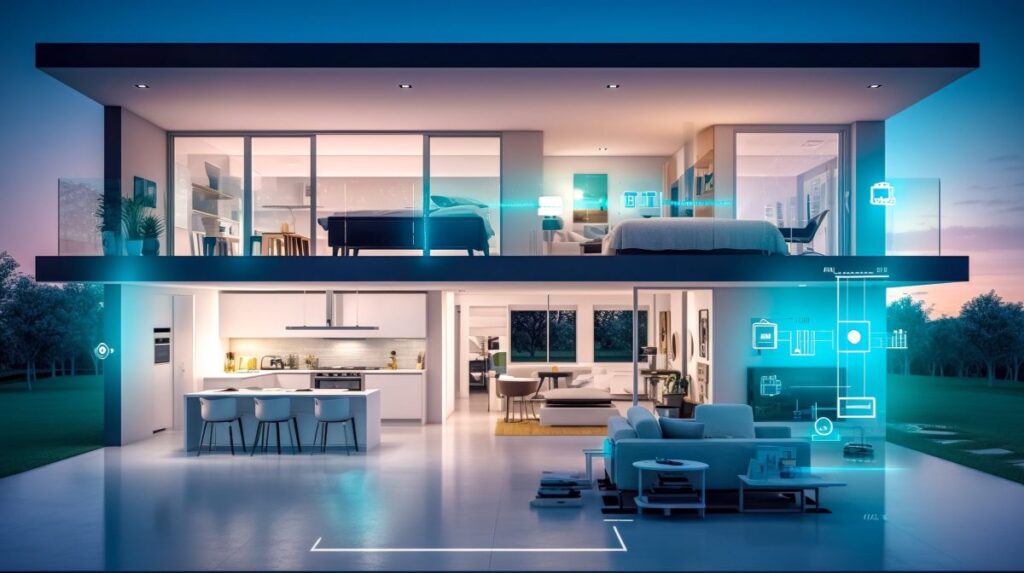In the past decade, the concept of a smart home has moved from science fiction to everyday reality. With devices like smart speakers, intelligent lighting systems, automated security cameras, and even AI-driven refrigerators, homeowners now have the option to transform their living spaces into fully connected environments. But the question remains: are smart homes truly worth the investment, or are they just an expensive trend?
What Exactly Is a Smart Home?
A smart home is essentially a residence equipped with devices connected through the Internet of Things (IoT). These devices allow homeowners to control functions like lighting, temperature, security, and entertainment from their smartphones, tablets, or voice assistants. For example, adjusting your air conditioner while away from home or checking your front door camera through an app are now common possibilities.
The core idea is convenience, efficiency, and security—making life easier while saving time and resources.
The Benefits of Smart Homes
- Convenience and Comfort
Imagine waking up to your coffee machine brewing a fresh cup as your curtains automatically open to let the morning sun in. This level of automation reduces daily hassles and allows homeowners to focus on other priorities. - Energy Efficiency and Savings
Smart thermostats and lighting systems can significantly cut energy usage. For instance, smart bulbs adjust brightness based on the time of day, while thermostats learn your daily routine and regulate temperatures to save power. This not only lowers utility bills but also benefits the environment. - Enhanced Security
Smart security systems, including video doorbells, motion sensors, and AI-enabled surveillance cameras, provide peace of mind. Many of these devices send real-time alerts directly to your phone, allowing you to monitor your home from anywhere. - Remote Access and Control
Whether you’re at work or traveling abroad, controlling your home with a smartphone app ensures flexibility. Forgot to lock the door? A simple tap solves it. Want to preheat your oven before you arrive? That’s possible too. - Resale Value and Modern Appeal
With growing demand for tech-savvy homes, smart features can increase property value. Buyers are often attracted to ready-made smart systems as they provide a modern edge to the house.
Smart Homes in 2025: Are They Really Worth the Hype?
The Drawbacks of Smart Homes
- High Initial Costs
While some devices like smart plugs are affordable, creating a fully automated home can be costly. Smart appliances, security systems, and central hubs require significant investment. - Privacy Concerns
With every connected device, there’s a risk of data being shared or hacked. Voice assistants, cameras, and sensors can raise questions about surveillance and how much personal data companies collect. - Dependence on Internet and Technology
If your Wi-Fi goes down, so does much of your smart functionality. Similarly, technical glitches or software updates can temporarily disable features, which can be frustrating. - Compatibility Issues
Not all smart devices are universally compatible. Sometimes, homeowners need multiple apps or systems to control different devices, which can reduce the convenience factor. - Learning Curve
For some users, especially older generations, adapting to smart technology can be overwhelming. Managing devices, apps, and settings requires a level of digital literacy.

Are Smart Homes Worth It?
The answer depends largely on personal priorities and lifestyle. For tech enthusiasts and busy professionals, smart homes are a game-changer—offering efficiency, time savings, and enhanced security. For environmentally conscious individuals, smart devices that reduce energy waste are a big plus.
However, if budget is a concern or if you’re not comfortable with data-sharing risks, then going fully smart may not be the best choice. In such cases, adopting a few affordable smart gadgets, like a smart plug or bulb, can provide a taste of the benefits without overwhelming costs.
The Future of Smart Homes
The smart home industry is projected to grow exponentially by 2030. Innovations such as AI-driven personalization, better data privacy protections, and improved device compatibility will likely address many current challenges. With companies like Google, Amazon, and Apple investing heavily in smart ecosystems, we can expect a future where connected homes become the norm rather than the exception.
Final Thoughts
So, are smart homes really worth it? The answer isn’t black or white. They provide undeniable convenience, energy savings, and enhanced security, but the downsides of cost and privacy concerns cannot be ignored. For many, the best approach is gradual adoption—starting with a few smart devices and expanding over time.
Ultimately, the value of a smart home depends on how much you prioritize comfort, sustainability, and technological convenience. If those factors resonate with you, then yes, smart homes are absolutely worth the hype.

